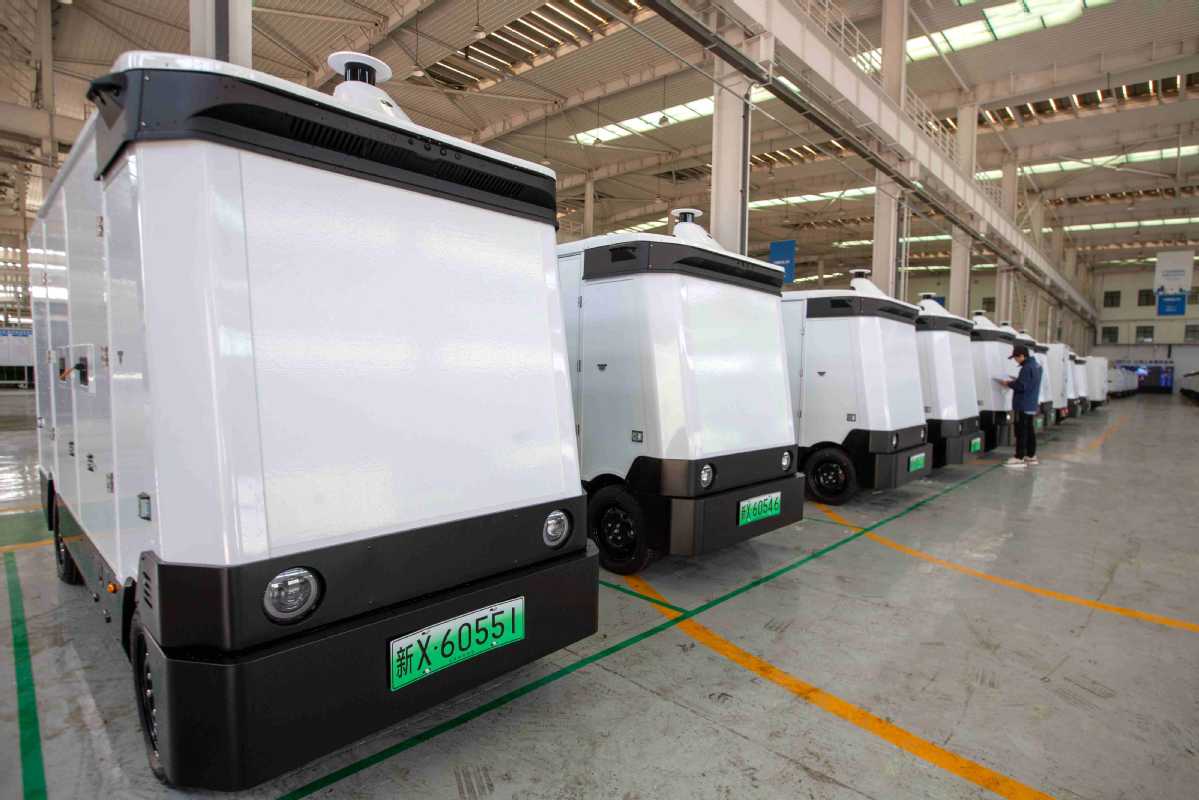Chinese autonomous delivery vehicles making inroads overseas


Chinese autonomous delivery vehicle makers are accelerating their push into global markets, with new milestones achieved in South Korea, Europe and beyond.
On July 24, domestic autonomous vehicle manufacturer Neolix signed a cooperation agreement with the city of Incheon, South Korea, during a ceremony held in Beijing, signaling the first official use of unmanned delivery vehicles in South Korea's history.
According to the memorandum of understanding, Neolix will partner with the Incheon Free Economic Zone Authority (IFEZA) to provide smart logistics automation services to key logistics hubs in Incheon, while long-term plans also involve the use of Incheon as a strategic base for expanding its investment and operations across the South Korean market, according to Neolix.
In his speech, Incheon Mayor Yoo Jeong-bok expressed high hopes for the partnership, saying he aims to make the city a pioneer in smart transportation and logistics innovation. He added that Incheon will work to attract more leading smart city enterprises as it strives to join the ranks of the world's "top 10 global cities".
As a new bridge for China-South Korea cooperation in intelligent transport and logistics, Yu Enyuan, founder and president of Neolix, called the agreement "a key step" in the company's international expansion.
"By investing further in Incheon and offering smart logistics automation and ecosystem development, we aim to help the city boost delivery efficiency, upgrade mobility systems and serve as a model for bilateral collaboration," Yu said.
Neolix has already launched driverless solutions in countries such as Japan, the United Arab Emirates, Saudi Arabia and Germany, across dozens of real-world use scenarios.
According to market consultancy QYResearch, the global market for Level 4 autonomous delivery vehicles reached $1.131 billion in sales in 2024 and is projected to grow to $2.379 billion by 2031, with a compound annual growth rate of 11.3 percent between 2025 and 2031 and China remaining one of the key markets in this sector.
Zelos Tech, another major Chinese developer under the category, has completed its first unmanned vehicle deployment in Linz, Austria, marking its initial operational rollout in Europe.
The project was carried out in partnership with DigiTrans GmbH, a key Austrian platform focused on transportation and logistics, and its affiliates.
According to Zelos, the deployed Z5 delivery vehicle runs entirely on self-developed hardware and software, including sensing algorithms and vehicle control systems, with no reliance on external technology.
The Linz project is expected to serve as a beachhead for expanding into German-speaking countries such as Germany and Switzerland, while also laying the groundwork for further moves into France, the Netherlands and other European markets, the manufacturer said.
Although China's autonomous delivery vehicles are gaining better global traction, overseas adoption is still in its early stages, and companies must first go through a phase of educating and building trust with customers, said Zhou Qing, co-founder of Zelos Tech.
"Currently, we have around 11-12 vehicles undergoing pilot operations with clients in developed countries, gradually proving their value in real-world scenarios. Once the vehicles meet local entry requirements and gain sufficient market traction, the company expects to see a surge in overseas orders within the next two years," Zhou said.
"We chose developed countries as primary overseas targets because their high labor costs make it easier to realize a return on investment in the short term," Zhou said. "Governments and businesses in these markets are more receptive to automation and tend to support commercial validation efforts, helping to accelerate deployment."
Zhou added that the company has deeply localized its technology to meet regional demands. For example, in response to the high heat and sandstorms in the UAE, Zelos enhanced its sensor sealing and thermal management systems. In Singapore, it optimized its modular cargo compartment design and improved battery performance to support the city-state's frequent, small-batch delivery needs.
Zelos has already launched operations in foreign markets like Singapore, the Middle East and Europe, and secured the first license for autonomous delivery vehicles in Singapore.
lijiaying@chinadaily.com.cn




































